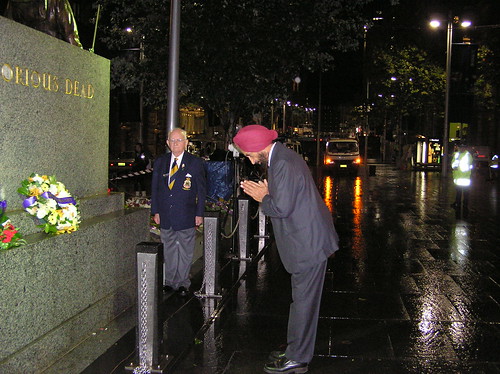Anzac story was not a glorification of war, but a story of courage and bravery that transcends generations. …

Sikhs are a separate race of people, originating in the Panjab - northwest of the Indian subcontinent. Panjab is the homeland of the Sikhs, though since the last six centuries of their existence they have settled all over the globe. The Sikh religion is the fifth largest world religion and Panjabi, the mother tongue of the Sikhs and many others, is spoken widely all over the world. The Sikhs at Gallipoli (part of 29th Indian Infantry Brigade)
At Easter Dr James Cumes and Bawa Singh Jagdev met in Sydney and so many stories were told … some about the 300 Sikhs whose unmarked graves at PNG are one of the sad stories of WWII … As far back as I can remember I have felt James Cumes' Haverleigh had the soul and guts and truth of a classic of Australian Literature. Haverleigh is a lot of things. It's a love story, a war story, the story of an improbable and impossible era peopled with all too probable, all too possible, all too real human beings. It's fraught with pain and love and irony and affection and disaffection. You will be different for having immersed yourself in it. Kokoda of Haverleigh
Anzac Debt of gratitude owed to unsung barefoot heroes
As he joins former comrades for Anzac Day at an eastern suburbs bowling club today, a quietly spoken Scottish colonel will down a dram for what he calls the Australian army's "forgotten soldiers" in the Pacific War.
In their recent rediscovery of the Kokoda Track battle of 1942, Australians know about the "Fuzzy-Wuzzy Angels" - the 55,000 Papuan porters who supported the diggers in their epic struggle to stop the Japanese crossing the Owen Stanley Range.
• A Papuan batallion led by Australian soldiers during the war in the Pacific.; [Haverleigh of James Cumes; The Anzac landing at Gallipoli]
• · Many brave rain at Sydney dawn service; At the beginning of the war, Sikh military personnel numbered around 35,000 men of the 161,000 troops of the Indian Army, around 22% of the armed forces, yet the Sikhs only made up less than 2% of the total Indian population. By the end of the war 100,000 Sikh volunteers joined the British Armed forces with a few Sikhs also contributing to the French Air Service and the American Expeditionary Force Lions of the Great War